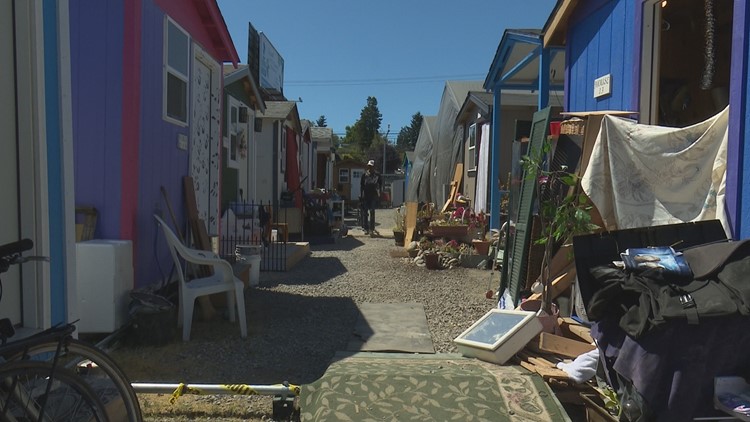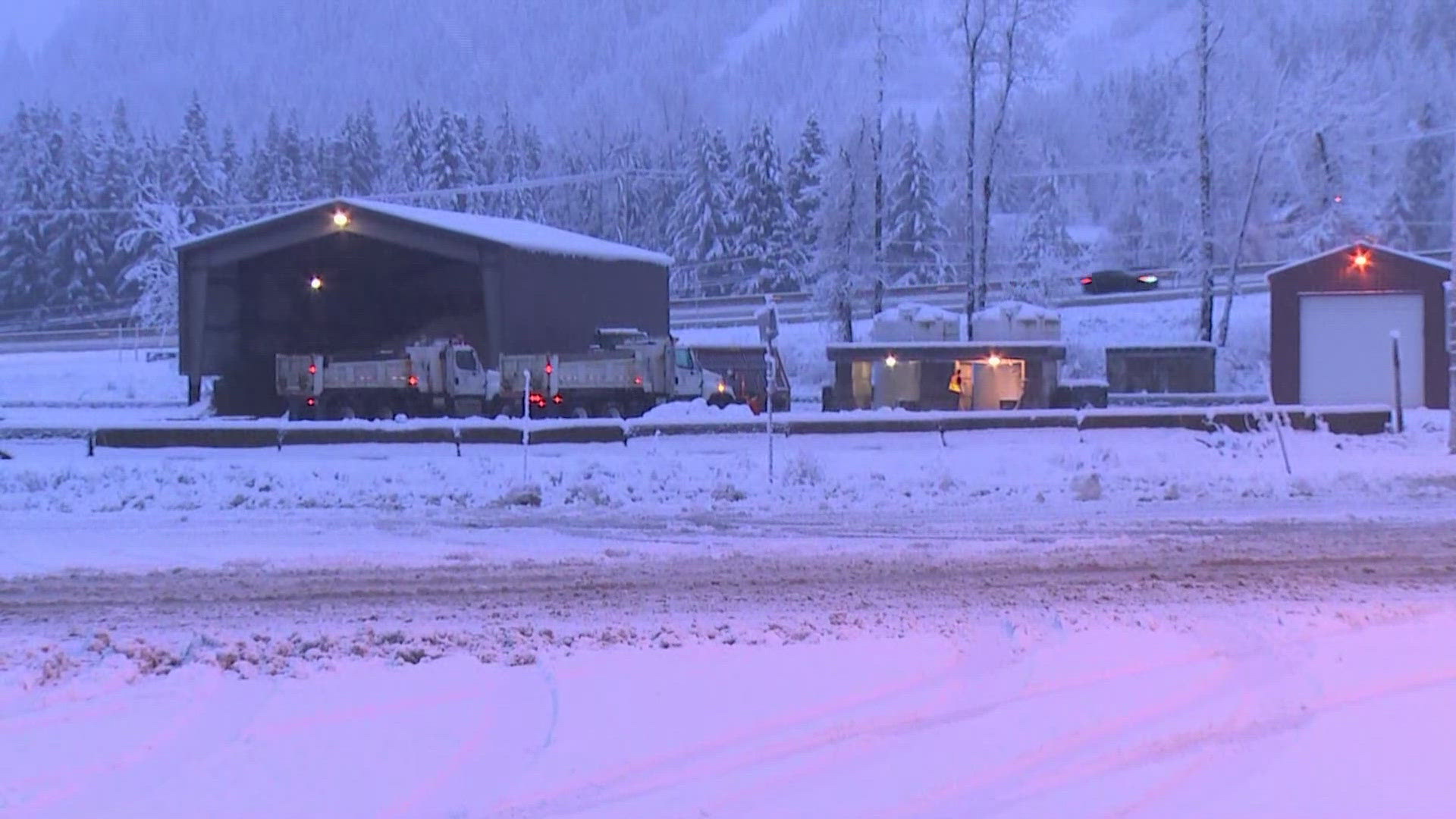Residents of a new tiny home village in Seattle show off their new homes.
The sanctioned homeless camp, named Licton Springs, opened on Aurora Avenue North in April. The site features 30 tiny houses with access to showers, electricity, and furniture.
The 12-foot by eight-foot homes have locking doors and windows, heat, insulation, and an outlet.
Licton Springs is one of six similar villages across the city. This one is a low-barrier village. That means residents do not need to be alcohol or drug free. Licton Springs also allows couples and pets.
Anywhere from 50 to 60 people live there at a time, according to Bradford Gerber of the Low Income Housing Institute, or LIHI.
“There was some initial community push back,” said Gerber.
Before it opened, neighbors worried of crime coming to the area. Gerber said residents, even though they don’t have to be sober, do need to follow community behavior rules and are supervised by staff 24/7. He warned figuring out if crime is done by residents or nearby transients is nearly impossible.
“There’s no perfect data on who does what and where, but we have a lot of anecdotal data on how camps like this have impacted and positively impacted the communities where they’ve been,” he said.
Gerber said the low-barrier tag brings more people in who wouldn’t otherwise, like Laudette Masic, who said she’s been homeless since age 9 and battled a meth addiction.
“This is my first home,” said Masic.
Other residents said they came to Licton Springs after being swept from their encampments, like Douglas Pace and his girlfriend Toccoa Davis.
“They’ve been sweeping us and they didn’t used to have really any options,” said Pace. “The last time they swept us, this was an option and we were a little hesitant about it, but it’s at least giving it a try for us.”



